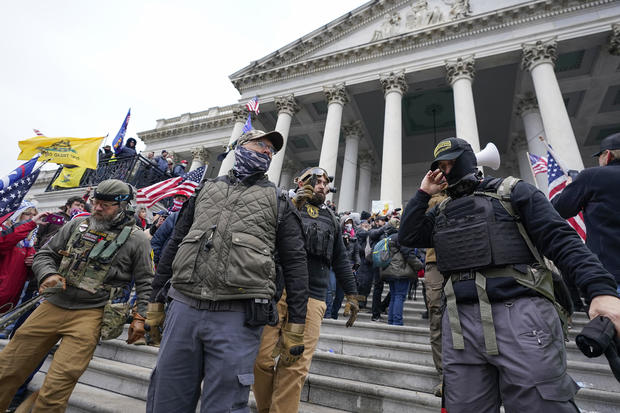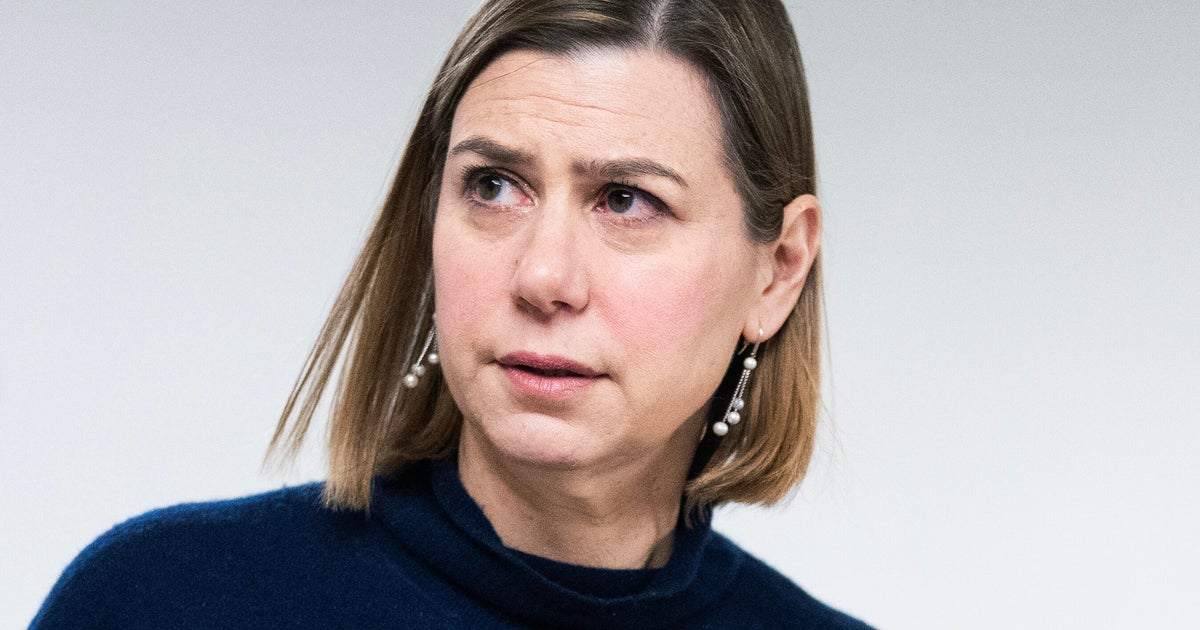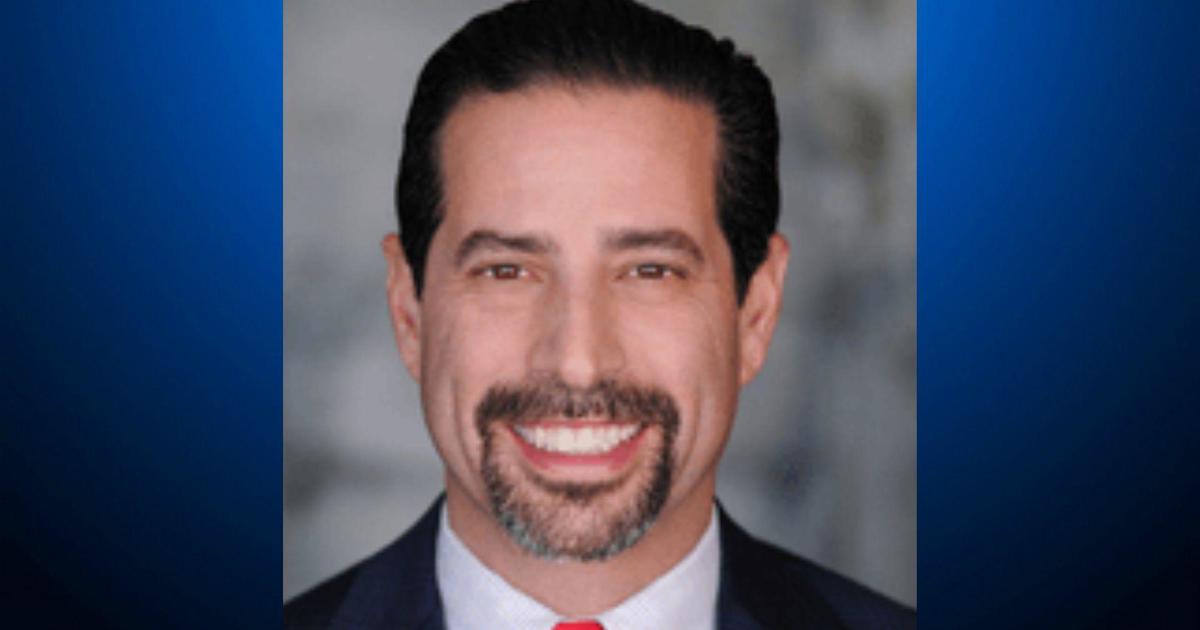Second Oath Keeper seditious conspiracy trial begins
Jurors in Washington, D.C., heard opening arguments Monday in the Justice Department's next seditious conspiracy trial against members of the Oath Keepers, a far-right anti-government militia whose members are accused of playing a significant role in the Jan. 6, 2021, attack on the U.S. Capitol.
The trial, set to proceed through the remainder of the year, is the second brought by the government against Oath Keepers members present during the 2021 attack on the Capitol during the joint session of Congress when the 2020 electoral votes were being counted.
Four codefendants — Roberto Minuta, Joseph Hackett, David Moerschel and Edward Vallejo — are accused of conspiring to stop the peaceful transfer of power from former President Donald Trump to President Biden, along with other felonies like destroying property and evidence. Each has pleaded not guilty and their defense attorneys maintain the government's allegations overreach what the case's evidence can reasonably prove.
"In the defendants' words, they were at war," said Assistant U.S. Attorney Troy Edwards, who delivered the government's opening. "They were willing to use force and violence to impose their view of the Constitution."
Two weeks ago, the Justice Department secured guilty verdicts for five different Oath Keeper defendants, including the organization's founder Stewart Rhodes. Though all were charged with felonies, only Rhodes and his associate, co-defendant Kelly Meggs, were convicted of seditious conspiracy. Defendants from that trial are awaiting sentencing and face maximum sentences ranging from 40 to 86 years in prison.
Though Rhodes was not present in the courtroom, federal prosecutors and defense counsel both brought him up in their opening arguments — the government, to showcase violent rhetoric present in Oath Keepers correspondence, and the defense to distance their clients from those messages.
"This was an invitation to sedition," Edwards said of Rhodes' messages comparing his militia to American Revolutionary War fighters.
Scott Weinberg, defense attorney for Moerschel, rebutted the characterization by belittling Rhodes, calling him a "right-wing televangelist" who "lives off [militia] dues." According to Weinberg, his client was manipulated by Rhodes and other conservative media personalities who profited off Trump's false claims. "This is a bunch of people who are out of shape, overweight, elderly, and wanted to play military," Weinberg said.
Federal prosecutors allege that Moerschel, alongside Hackett, entered the Capitol building in what they describe as a "military stack formation," with the purpose of stopping members of Congress from certifying Biden's 2020 election victory. Minuta is accused of entering the Capitol with a separate group, also in a stack formation, and confronting police officers once inside.
Vallejo, a 63-year-old from Phoenix, Arizona, allegedly worked with Rhodes and others to amass a cache of firearms in a Virginia hotel room outside of Washington to provide a "Quick Reaction Force," or QRF, to Oath Keepers operating inside the District. The stockpile also featured heavily in federal prosecutors' previous sedition case last month.
Hackett's attorney, Angela Halim, called the government's presentation an "oversimplification" of the facts and urged jurors to differentiate her client from his co-defendants. "There was no unity of purpose," she said of the government's conspiracy charge.
The government is expected to begin presenting evidence on Tuesday.




